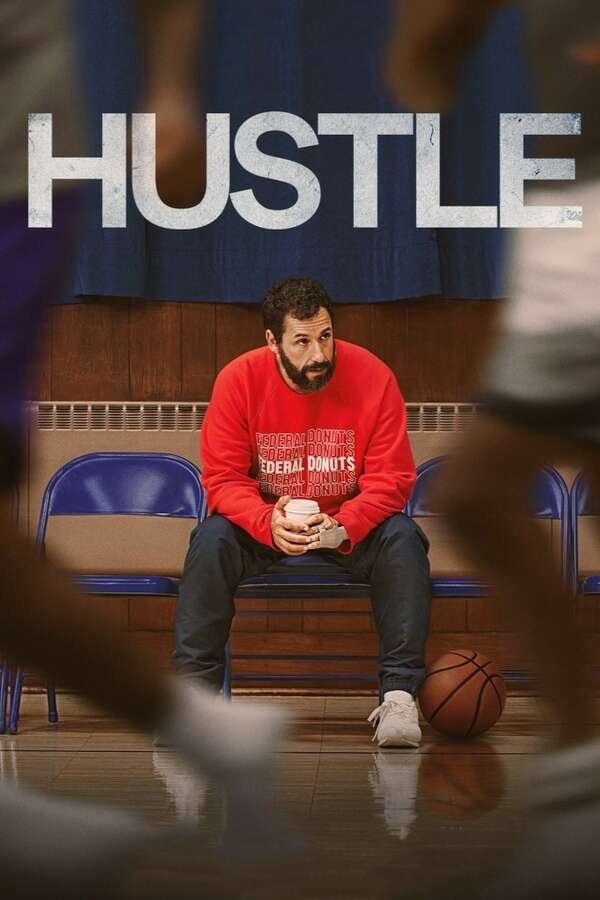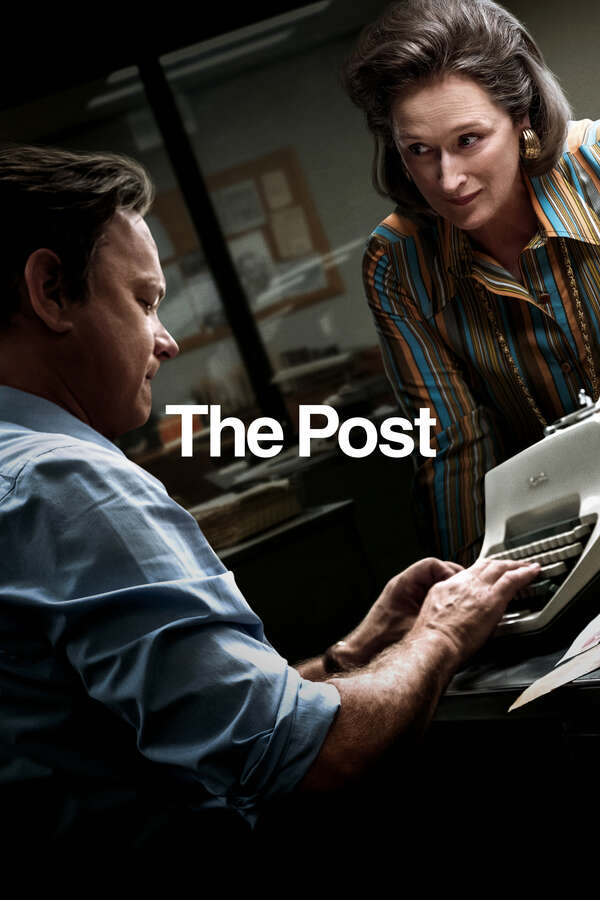macro
- a second week of COVID blues
- a holiday in Scotland
- the blur of returning to work after nearly three weeks off
Weeknote 33/22
It’s been a few weeks since I posted a weeknote. You missed out on:
I’m ready to write again now! Here’s the week that was…
💻 On Monday I got up and hosted/joined my weekly calls to start the week. All was well. Afterwards I hopped on the bus to go into my co-working space. It was the first day in a long time when I felt full of energy and looking forward to getting stuck in to my work. My laptop felt different and when I arrived at my desk it refused to turn on. So I immediately turned around and headed home. The rest of the day was a right off.
💰 With the help of an IT guy I know, I managed to get the laptop fixed pretty quickly and without breaking the bank. He has recommended that I think about making plans to replace it. Any recommendations welcome!
✅ Without my laptop I didn’t get a huge amount done, choosing to focus only on the essentials — calls with potential clients and coaching sessions.
💡 Spending less time at a screen gave me some space to think about some projects I’ve got on the horizon for freelancer strategy days and a full launch of my group coaching programme.
📋 I caught up with my co-host of the accountability group to run through our plans for the rest of the year and any potential changes to how we run things. We’re also in talks to develop something similar for another community.
🏑 On Wednesday I went to my first pre-season hockey training. I’m captaining a side this season and with that comes a lot of behind the scenes work. This week that involved coming up with a solution for pre-season trial games that suited all teams and coaches, and worked with the pitches we have available.
⚽️ I played my first wildcard to reset my fantasy football team. While that hasn’t proved successful for this gameweek, I am in a much better place going forward.
🍻 Now that I’m over covid and my pal is back from her holidays we spent Friday afternoon/evening trying out a couple of nearby taprooms and playing darts (badly).
🤞 I’m keeping my finger’s crossed that the week ahead holds no surprises or set backs!
Weeknotes 28-29/22
✅ With a grand total of two working days over the past two weeks my focus has been on the absolute essentials; planning activities for my next group coaching sessions, creating worksheets for said activities and preparing to launch my next group programme.
⚽ We took a trip to London to see Germany v Spain at the Women’s Euros. While in London we caught up with friends and dropped in to see the Cornelia Parker exhibition at Tate Britain.
🧟 Izzy came back from a big church event (~400 people on a university campus for four days) and tested positive for Covid. I followed suit a couple of days later. We’ve both had pretty bad cold and flu symptoms and been like zombies for a full seven days. I’m feeling much better (though lacking energy) as we start a new week.
☀️ What’s worse than 48 hours of unbearable heat? 48 hours of unbearable heat when you’ve got Covid! Somehow we got through it.
🎂 We celebrated Izzy’s big birthday in a very low key style — doing our weekly crossword on FaceTime with my parents and eating cake. All other celebrations postponed until we’re feeling better.
📺 While I’ve been ill I’ve struggled to read for any length of time so have watched a lot of not very taxing series on Netflix; two seasons of Chicago Fire and the first season of Heartstopper.
🛒 With plenty of friends on our doorstep we’ve had regular food deliveries but haven’t wanted to cook or eat much. Pretty sure I’ve survived on toast, biscuits, ice cream and lemonade.
Weeknote 27/22

🗓️ I’ve been feeling slightly apprehensive about the amount of work I have on and the limited days I have available in July. So I was pleased to hear a content migration job I’ve been waiting to get scheduled has been pushed back again. It gives me a bit of breathing room.
📑 Had a good meeting with a collaborator about pitching a project similar to the accountability groups we already run to another community.
💭 Ran session three of the group coaching pilot this week on the theme of boundaries. We’re now half way through the programme and I’m starting to think ahead to opening bookings for the next group starting in the autumn.
☕ One of the coaching group had to miss a recent session and as she lives nearby we met for coffee and a recap. Made me realise although there are great benefits to being able to run events online it is good to sit alongside someone.
📋 My main tasks outside of coaching this week have been making sure I’m prepared for the next few weeks where I’ve only got a maximum of two working days per week. I got my newsletter scheduled as well as completing some prep work for other up coming events.
🦋 I finished reading Barbara Kingsolver’s Flight Behaviour.
👀 I watched a lot of sport this week (aided by arriving at my parents who have both Sky and BT); most Wimbledon matches, most Women’s Euros matches, England v India T20s and the home nations southern hemisphere rugby tour matches.
🏏 While I’ve been home, we also went for a day trip to Nottingham to watch my eldest nephew play cricket and I’ve been helping my Dad with various labour intensive two-person jobs in the garden.
Weeknote 26/22
It’s Sunday afternoon and by some small miracle I’m here posting my weeknote!
🪞 On Monday I had a great conversation with Kerry Bertram of Brilliant Thing via LinkedIn Live on the broad theme of reflection. We talked about the power of pausing, creative ways to reflect and the importance of reflection for teams as well as individuals.
🧈 I spent most of Wednesday livid because the video call software we use for our accountability group had released a pretty major update without telling anyone. I found out about 30 seconds before I was due to host a session that I no longer had permissions to open the room. Thankfully my co-host was on hand to step in.
📄 Most of my time outside calls this week was spent working on the last few weeks of activities for my group coaching programme. I’ve also been researching launch plans for marketing the next run of the programme.
🛍️ A recurring theme of my weeks lately has been working in the background on small shifts to my positioning and offer. It’s slow progress but I’m getting there.
🔗 In the latest issue of my newsletter I shared what I’ve been reading in June in my end of the month link round-up.
🥗 Izzy and I are giving Weight Watchers a try for a month. So far, I’m enjoying cooking from their recipes (it’s not vastly different from what we’d usually eat, just more moderate portion sizes!)
👂🏼 I spent most of the week with a blocked left ear which made me disoriented and cranky. I also realised too late that it was really effecting my concentration.
🐶 We had Aggie staying with us until Wednesday evening. She’s such a treasure it really makes me rethink my hard stance on not having a dog while we’re in the flat.
📽️ On Saturday night we attended BALTIC is Curious as part of the month-long Curious Arts festival. We saw three excellent short films by women and non-binary people of colour.
🎾 Most of the weekend I’ve had tennis on in the background while I’ve either been reading or doing stuff around the flat. Watson and Norrie’s runs have been a highlight.
Weeknote 25/22
🙋🏼 Ran the second session of my group coaching programme on the theme of identity. I also got a head start on planning activities and creating materials for the remaining sessions.
🤔 Spent a good chunk of time thinking about how I position my business and talk about what I do.
💡 I’ve been thinking about my business model and how it may be affected by the rise in cost of living. Less disposable income for individuals could mean less investment in personal development activities like coaching. I’ve had a couple of ideas this week for how I can expand and offer my services for small businesses locally.
☕ Met all the other folk at my new co-working space for our first members’ coffee morning. Another sign that I’ve made the right choice.
🗃️ Tidied up my weekly and monthly planning templates in Notion. The main aim for doing this was to add sections to keep my monthly and quarterly goals visible.
🐶 Aggie arrived for a mini-break on Friday. She comes regularly enough that we all know the daily routine and she settles in well. I’m really enjoying it being light enough to take her round the park for our last walk of the day.
🍳 Cooked steak and proper homemade chips for a friend’s birthday meal over the weekend.
☂️ Finished Russian Doll and started watching the new season of The Umbrella Academy.
🎶 Enjoyed having coverage of Glastonbury on in the background the whole weekend while I pottered around the flat. Favourite sets include: First Aid Kit, Gabriels and, Skunk Anansie.
Hustle, 2022 - ★★★

Enjoyable enough. Bo and Stanley are certainly characters you can get behind. Probably would have appreciated it more if I knew who everyone was!
Weeknote 24/22
🏆 My Pod co-host and I have been shortlisted in the Freelance Impact category at YunoJuno’s Freelancer Awards. Voting is now open!
🖐 Finalised materials for next week’s group coaching session on identity to send out to participants.
📅 Added details of the regular events I run to my homepage (a job that’s been on the to do list for too long).
📰 Sent my newsletter which includes a new article on metaphors for goal setting.
🔮 Gave myself some time to zoom out and think ahead to what I want to work towards the rest of the year.
📢 I’ve committed to spending a block of time each week on marketing as it’s something I typically avoid doing. I’m about three weeks in now and slowly building a habit.
☕ Had a virtual coffee with a fellow facilitator to chat about what we’re both working on and agreed to do a LinkedIn live conversation about reflection.
📷 Revisited my Flickr account to find some images for a coaching activity. Had a tidy up and started planning an inspiration jaunt while we’re on holiday to get out exploring with my camera again.
👀 Went to the cinema to see Everything Everywhere All At Once.
🌳 Saw Hockney’s A Year in Normandie exhibition at Salts Mill. Spent considerable time with one tree. Bought a poster of wildflowers from the Arrival of Spring exhibition and a few postcards from the Normandy series.
🐯 By some miracle I was able to avoid hearing the outcome from Saturdays Gallagher Premiership Final so I could watch it on catch-up on Sunday night. As a Leicester supporter I was on the edge of my seat for much of the second half and practically holding my breath for the final 5 minutes.
The ground beneath our feet
On my walk to work today I listened to an episode of On Being that was a conversation from 2016 between Krista Tippett and the poet David Whyte. About 10 minutes in, as a precursor to reciting his poem Everything is Waiting for You, Whyte said:
we have so many allies in this world, including just the color blue in the sky, which we’re not paying attention to, or the breeze or the ground beneath our feet.
I have to be honest, although the rest of the episode played on, I wasn’t giving it my full attention. I was too hung up on these words and how they made me feel.
I looked up to the blue sky above me, with barely a cloud in sight. My world felt vast. I turned my attention to the feeling of the solid concrete under my feet. I felt supported. Safe.
I know the benefits of feeling connected to the world around me, of grounding myself, and feeling a sense that I’m part of something bigger (sympatheia is what the Stoics call it). But, I haven’t had a hook that calls me back, or reminds me of this connection. Now I do. It’s the idea that when I need it most these things will be there, without fail, to support me and lift me up.
Tags: #quotes #DavidWhyte #OnBeing #nature
Everything Everywhere All at Once, 2022 - ★★★★

I'm glad I went in to see this without expectations. I'd seen the trailer months ago and then avoided everything else.
It took me a while to warm up to it. But when I let myself go, I thoroughly enjoyed this film for its ridiculousness and ambition. What I particularly liked was that underneath the fantastical at its heart this is a family drama.
My enjoyment was topped off when I returned home to find two googly eyes randomly placed on the mantelpiece.
Weeknote 23/22
🌟 The first session of my group coaching pilot was on Tuesday and it couldn’t have gone better. We started with a benchmarking activity which we’ll review at the end of the programme to help judge what progress has been made. The theme of the week was values, so the rest of the time we explored how these show up in the work we do and set actions to work on before the next session.
🏗️ This week I watched my first co-working/office space get razed to the ground… and moved into a new space where I’m planning to spend a couple of days a week for the foreseeable future.
🐠 While my co-host is away I’ve been running June’s accountability Pod solo, so that’s been taking up a bit more time and energy this week.
🔮 I spent a little time this week looking ahead to map out some business goals for the next 6 months.
🤯 I’ve had contracts to read for my new co-working space and associate work, as well as a long overdue update to my website’s privacy policy. I’m still trying to get my head around a couple of clauses which are anything but clear!
👨🏼🍳 I’ve been pretty grumpy and not very nice to live with for the past few weeks. Managed to turn things around this week and cooked an apology curry for Izzy; butter chicken, onion bhaji and roti.
🏏 We visited my sister and family over the weekend. Most of this was spent playing football and cricket with my nephews.
Weeknote 22/22
📆 It’s been a funny old week. Through travel and Bank Holidays I worked three days (two full, two half). It was quiet as we’re between Pods and many people are away for the school holidays. Without my usual standing commitments I had the opportunity to zoom out a little and think about longer term plans.
🧠 One thing I’ve been trying to figure out if the connections (and gaps) between the different things I do, how I communicate that and what I can do to make it more coherent.
📋 There were still a few logistical things to set up for June’s Pod and my group coaching pilot programme that both start next week.
👑 I have mostly been avoiding anything to do with the Queen’s Jubilee. My one concession was baking some scones for Izzy to take to her church gathering.
🏏 I spent the end of the week pottering at home with the first test match between England and New Zealand on the radio.
🥃 Joined friends on Friday for a birthday celebration in the local beer cafe. Sadly they’d run out of whiskey for our final drink of the night, but they did have some coffee tequila as a back up. It was delicious — I may be a convert!
🎨 I’ve been meaning to get back into watercolour painting for some time. This weekend I finally started a Domestika course to ease me back in.
Weeknote 21/22
🗓️ Monday brought another monthly plan with me session. It was the largest group so far this year with a good mix of first timers and regulars.
🍷 We experimented with adding a social hour to the Pod. Not everyone was able to make it this time, but it went down very well with those who came.
📋 I had a catch up with the hosting team behind our daily mindfulness sessions to review developments and write prompts for the next few weeks.
📄 I’ve mostly been working on the activities for the upcoming pilot of Inner Work for Independent Workers.
🔗 I sent May’s link round-up newsletter.
🤔 I’ve done four-day weeks for the last couple and I think I’ve realised that I work more effectively this way. Definitely thinking of making this permanent.
🛋️ Our new sofa got delivered on Thursday. I spent the morning in anticipation and the afternoon faffing… very little work was done.
1️⃣ I’m giving Day One another try to start keeping a kind of log book. I’ve hooked it up to other services so other updates and activities get sent there too. Let’s see if it sticks.
🩸 I gave blood on Wednesday. The waiting room was full which is always good to see. This was donation number 33 for me, so I’m on course to reach 40 in my 40th year.
✂️ One of my favourite times of the month is going to get my hair cut. I find 30 minutes in the hairdressers chair is as good as a trip to a spa.
🧩 Visited my parents over the weekend. We chatted, walked and ate well. It also meant we got to do our weekly crossword in person.







